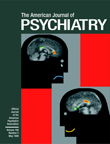Depressive Symptoms and Plan Switching Under Managed Care
Abstract
OBJECTIVE: A central assumption underlying managed care is that plan switching is a viable option for enrollees when they are dissatisfied. The authors used a national employee survey to test the hypothesis that this mechanism is less effective for enrollees with high levels of depressive symptoms than for the remainder of the population. METHOD: The study used data from the Employee Health Care Value Survey, a 1993 survey of 20,283 employees of three major corporations. The authors used the Medical Outcomes Study 36-Item Short-Form Health Survey to identify individuals with the highest decile of depressive and physical symptoms. They examined the relationship between symptoms and dissatisfaction and, for dissatisfied individuals, how symptoms predicted plan switching. Multivariate models were used to control for potential demographic, health, and health coverage confounders. RESULTS: Depressive and physical symptoms were both associated with dissatisfaction with care. Unlike physical symptoms, depressive symptoms were associated with a significantly lower likelihood of actually disenrolling among people who were dissatisfied or who intended to disenroll. This effect was most pronounced for satisfaction with administrative aspects of care (e.g., gatekeeping, utilization review). CONCLUSIONS: People with high levels of depressive symptoms appeared to be less willing or able to act on their dissatisfaction by switching plans. In particular, they were willing to tolerate higher rates of dissatisfaction with the administrative aspects of their health coverage without disenrolling. Plan switching is an essential mechanism underpinning a health care system predicated on competition; it may be less effective for people with depressive disorders.



